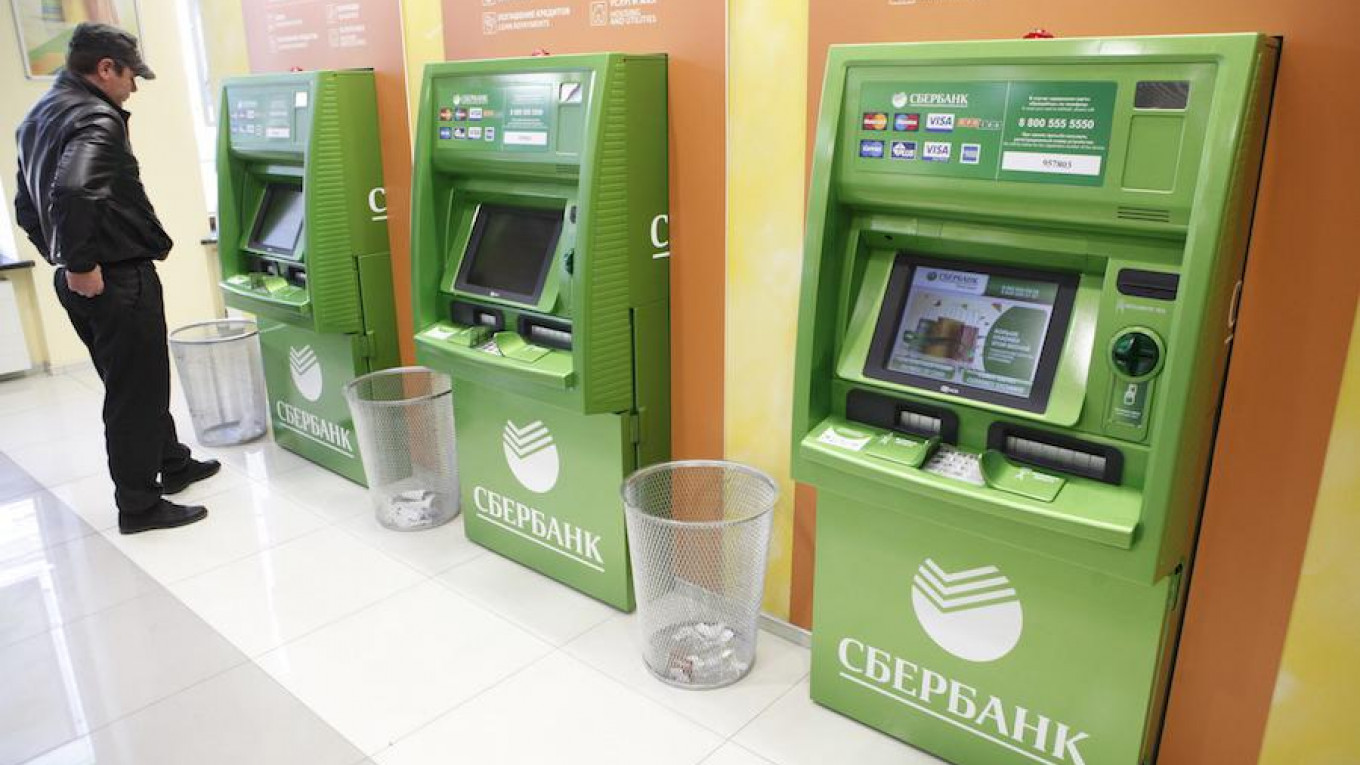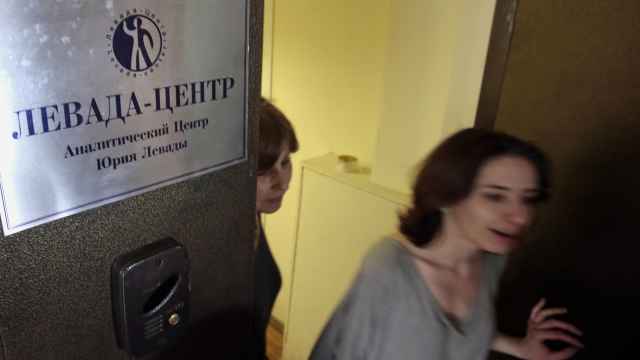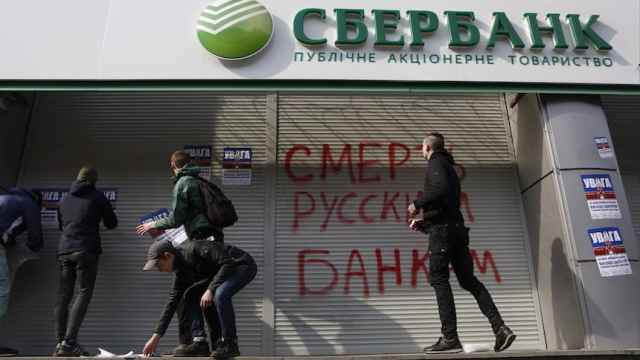Russia’s largest state-owned bank is limiting cash withdrawals for customers in Ukraine after their central headquarters in Kiev were blockaded by anti-Kremlin demonstrators.
Sberbank’s Ukrainian subsidiary announced on Wednesday that customers would not be able to withdraw more 30,000 hryvnia ($1,115) daily.
Members of Ukrainian nationalist group the Azov battalion used concrete blocks to brick up the entrance to Sberbank’s headquarters in Kiev on Monday, forcing the branch to suspend operations.
The group claimed that they had also attacked ATMs belonging to Sberbank and other Russian companies in major cities across Ukraine using insulation foam.
Azov battalion leaders say that they're demanding that Sberbank and other Russian companies leave Ukraine.
The Ukrainian government is set to discuss possible sanctions against Russian banks on Thursday. The National Security and Defense Council of Ukraine is expected to target Sberbank Ukraine in retaliation to the bank's decision to begin accepting documents issued from Ukraine's breakaway republics in Donetsk and Luhansk.
Vladimir Putin signed an executive order officially recognizing identification documents from the two self-proclaimed republics Feb. 18.
Individuals can now use the documents to cross the Russian border, and local authorities will also recognize locally-issued education documents, certificates recording births, deaths, marriages, and divorces, and car registrations.
Russian Foreign Minister Sergei Lavrov has already condemned the protests, comparing the demonstrators to "lynch mobs."
"I understand that Sberbank managers have contacted the Ukrainian authorities in a bid to stop these attempts to hamper their day-to-day work," Lavrov said. "Lynch mobs are intolerable. They violate the law and undermine property rights protected by Ukrainian law."
A Message from The Moscow Times:
Dear readers,
We are facing unprecedented challenges. Russia's Prosecutor General's Office has designated The Moscow Times as an "undesirable" organization, criminalizing our work and putting our staff at risk of prosecution. This follows our earlier unjust labeling as a "foreign agent."
These actions are direct attempts to silence independent journalism in Russia. The authorities claim our work "discredits the decisions of the Russian leadership." We see things differently: we strive to provide accurate, unbiased reporting on Russia.
We, the journalists of The Moscow Times, refuse to be silenced. But to continue our work, we need your help.
Your support, no matter how small, makes a world of difference. If you can, please support us monthly starting from just $2. It's quick to set up, and every contribution makes a significant impact.
By supporting The Moscow Times, you're defending open, independent journalism in the face of repression. Thank you for standing with us.
Remind me later.






